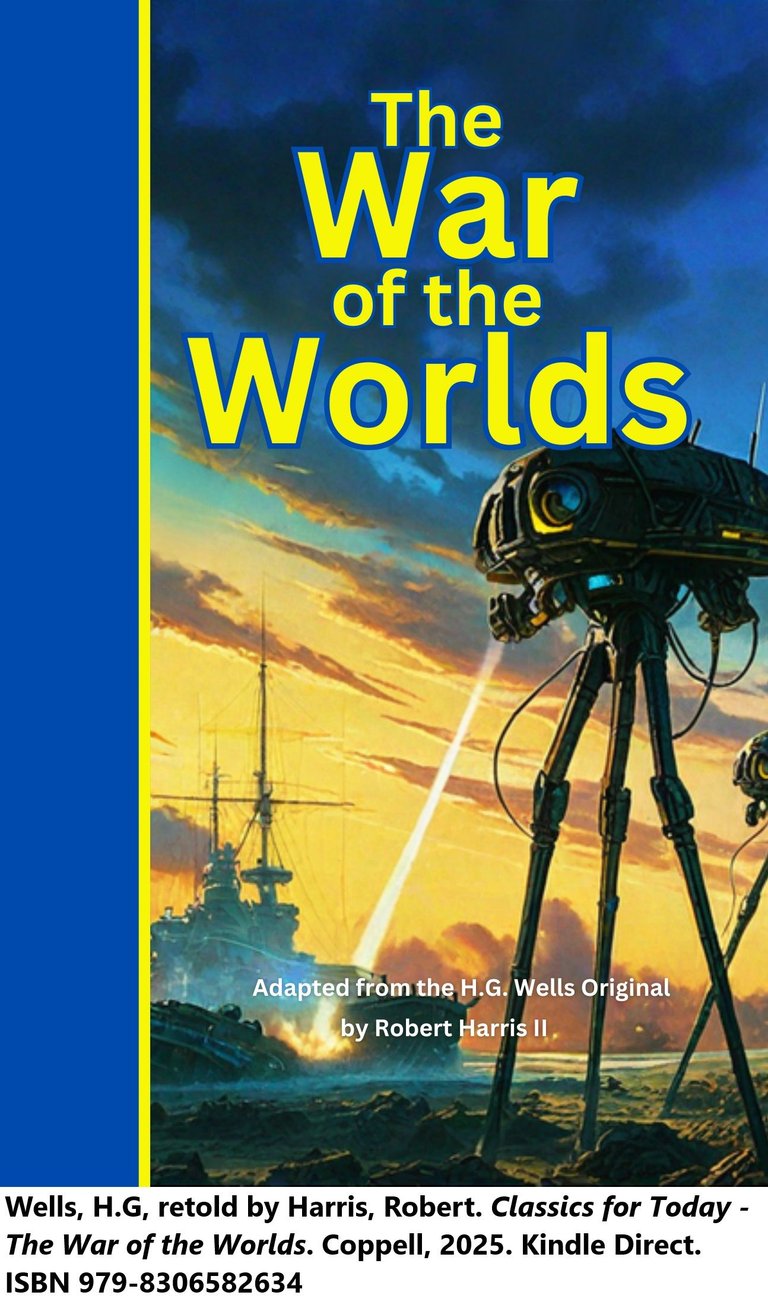I Don't Normally Like Abridged Works, But...
In this case, for its value as an educational tool, I'm going to give this one props.
Rare indeed is the serious reader who is not familiar with H.G. Wells's classic novel of a Martian invasion, widely regarded as the first ever major work about an invasion from another planet. Most serious students of literature also know that it served as a metaphoric criticism of British Imperialism in the 19th century. And while I normally am of a mindset that using an abridged work detracts from the students' experience of reading the author's original prose, I find myself teaching ESL this year to students whose mother-tongue is Ukrainian, so when I came across a literary classic adapted for 7th graders, which also happened to be bilingual (English-Ukrainian), I couldn't pass it up.
I'm glad I didn't!
The book is specifically designed for classroom use. Not only does it contain the story itself, with a Ukrainian translation on every page, but each chapter also features a vocabulary supplement with a Ukrainian translation and English examples, and two pages of comprehension questions (one page for reading comprehension and another for vocabulary). It's not hard to tell it was specifically written with Ukrainian ESL students in mind.
The best part, though, is the way Harris repurposes the story.
See, instead of being an allegory for 19th century British Imperialism, the story is adapted to serve as an allegory for Ukraine's resistance against 21st century Russian imperialism. From the artilleryman and the narrator's long arguments about why the rest of the world is turning a blind eye, to the captain of the H.M.S. Thunderchild making a "Russian warship, fo f**k yourself" reference as he sacrifices his ship and crew to protect fleeing civilians, the allegories are masterfully reworked. The Martians' tripedal fighting machines serve as stand-ins for Russian T-90's, the heat-ray neatly channels Russia's use of thermobaric weaponry on civilians, the advent of the Martians' black smoke weapons recalls the Russian army's addition of white phosphorous, and of course, the Martians' hints at the development of a flying vehicle serve as a metaphor for the Russian Army's (admittedly clumsy) psy-op surrounding the myth of the existence of the "Oreschnik" missile.
Caveat Paedagogus
It suffers from the same flaw as any abridged novel. The narrative is rushed in some places and in others the prose loses something in the watering down process. Also, if you're using the novel as a cross-curricular tie-in to a study of 19th century imperialism then obviously the adaptation loses its validity in that department by becoming an allegory for current events instead of history. Essentially, know what you're teaching and why, and make the decision for yourself about whether your students are in the categories that would benefit from this.
Of course, that's axiomatic advice to any teacher in any class.
Conclusion
Even if you're not a teacher and just looking for some light reading for an afternoon, this makes a tasty bite. It's not going to challenge the serious reader but then again, it's not meant to. It's a student volume, so take it for what it was intended to be.
With that said, if you are a middle school literature teacher whose students have a reading level a little too low for the original, or an ESL teacher with Ukrainian students who need some reading comprehension work, either way this book ought to be part of your curriculum.

Congratulations @bruce-pendragon! You received a personal badge!
You can view your badges on your board and compare yourself to others in the Ranking